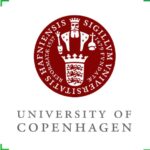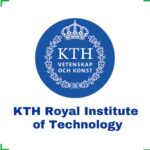Are you holding Master’s degree and ready to elevate your academic journey to the highest level? Umea University, Sweden, has announced a multiple fully funded PhD positions awaiting talented individuals like you. Don’t miss your chance to be part of our vibrant academic community. Explore the exciting PhD positions available and submit your application today!”
Candidates interested in fully funded PhD positions can check the details and may apply as soon as possible.
(01) Fully Funded PhD Position
PhD position summary/title:– PhD student in plant science with focus on deep-learning conifer genomics
Ever advancing high-throughput DNA sequencing technologies continue to produce genome assemblies of larger genome sizes, such as conifers (10-40 Gb, 3-15x of human genome), wheat (15 Gb, 5x), axolotl salamander (32 Gb, 11x), and giant lungfish (43 Gb, 14x). Genome annotation (identifying various functional sequence elements) presents one big challenge in analyzing large genomes, for example, to identify transposable elements (TEs), major component of most plant genomes especially those large genomes. Deep-learning models (currently used for computer vision and natural language processing), which can encode high-dimensional genome sequences into vectors and learn and resolve the sequence complexity, offer promising solutions for efficient identifying sequence elements (such as TEs) from genome sequences.
The PhD project focuses on plant genomics and the development of deep-learning driven computational tool. (1) This project aims to develop new deep-learning driven TEs identification tools to further decrease the computational demand for large genome analysis. (2) To develop such an efficient computational tool, this project will first construct a comprehensive TE dataset to capture the sequence diversity of TEs by collecting genome data from hundreds of plant species. (3) This project will also look into TEs integration profile by predicting TE insertion from genome sequences. This project will potentially develop a set of new analytical tools and reveal a more insightful picture of TE movement and evolution.
This PhD position is focused on developing and applying deep-learning driven methods to advance our understanding of complexities of TE in large plant genome. The successful candidate will work at the interface of machine-learning, computational biology, and molecular biology and will have the opportunity to collaborate with experimentalists and computational scientists across a wide range of disciplines.
Deadline : 2024-09-02
(02) Fully Funded PhD Position
PhD position summary/title:– PhD position in Experimental Physics
The ‘Ultrafast Nanoscience’ group at Umeå University is looking for a highly motivated PhD candidate interested in performing research on ultrafast spectroscopy in condensed matter nanosystems. The project interfaces exciting fields of research, including ultrafast science, photonics and magnetism, with an overarching goal to understand the dynamics of electronic degrees of freedom (charges and spins) in nanostructured materials.
The PhD student will study the physical mechanisms underlying light-matter interactions in nanoscale magnetic materials. By combining time-resolved (pump-probe) spectroscopy, finite element method and micromagnetic modelling, the candidate will design and realize plasmonic excitations affecting magnetic phenomena on ultrafast timescales. The project will disclose novel mechanisms which might have a huge impact on forthcoming light-driven data processing technologies.
The project foresees ample collaborative opportunities with other research groups in Europe, such as Lund University (Sweden), CIC nanoGUNE (Spain), Italian Institute of Technology (Italy) and the University of Luxembourg (Luxembourg).
Deadline : 2024-08-31
View more Fully Funded PhD Positions Click Here
(03) Fully Funded PhD Position
PhD position summary/title:– PhD position in mathematics or mathematical statistics, with focus on geometric deep learning
Machine learning (‘artificial intelligence’) is having an immense impact on both society at large and research especially, and this impact is expected to increase. This boom is driven by so-called deep neural networks, a class of machine learning models proven incredibly powerful, versatile, and capable of solving many machine learning tasks. Mathematicians have taken huge steps towards theoretically understanding their empirical success, but many open questions remain.
A subfield within neural network theory is geometric deep learning. It concerns symmetries in the data or the learning task and constructing neural networks that react properly to them (equivariant networks). Examples of such symmetries are symmetries towards rotations of point clouds, translations of images or permutations of nodes in graphs. Combining the geometric/algebraic theory of (group) symmetries with the more analytical/statistical theory of machine learning allows for mathematically multifaceted research.
The project aims at deepening the mathematical theory of geometric deep learning. Exciting research questions include the development of new ways of constructing equivariant networks, describing the resulting models mathematically, and directly analyzing how symmetries affect the training of neural networks.
Deadline :2024-08-26
(04) Fully Funded PhD Position
PhD position summary/title:– PhD Position in Experimental Physics with focus on Optical Frequency Comb Spectroscopy
The Optical Frequency Comb Spectroscopy Group (www.umucombs.org) works with development and applications of optical frequency comb spectroscopy for broadband precision measurements and sensitive detection of molecular species in gas phase.
We are now seeking a PhD student to work on the project aimed at high-resolution broadband spectroscopy of molecules of importance in astrophysics. Satellite- and ground-based observations of hot-Jupiter exoplanets revealed the presence of molecular species in their atmospheres. The observed spectra carry information about the composition, conditions and photo-chemistry in the exoplanetary atmospheres. To extract this information, accurate theoretical models of high-temperature spectra are needed. These, in turn, must be verified by data obtained from high-precision laboratory measurements. Such data are missing for many molecular species, because high-temperature spectra are difficult to obtain and very congested, and therefore hard to analyze. To circumvent this problem, we employ double-resonance spectroscopy with a frequency comb probe to selectively measure and assign individual hot-band transitions of methane and other molecules of importance in astrophysics. In double-resonance spectroscopy, a high-power laser pumps a single energy level and a weaker laser probes transitions from this selectively populated level to higher energy levels. Using a frequency comb as a probe allows the detection of a large number of these transitions simultaneously with high accuracy. Following the initial demonstration, described in Phys. Rev. Lett. 126, 063001 (2021) Phys. Rev. Lett. 126, 063001 (2021) – Sub-Doppler Double-Resonance Spectroscopy of Methane Using a Frequency Comb Probe (aps.org) (doi: 10.1103/PhysRevLett.126.063001), we recently developed a cavity-enhanced system with increased sensitivity for the comb probe, as described in Nat. Commun. 15, 161 (2024) Sub-Doppler optical-optical double-resonance spectroscopy using a cavity-enhanced frequency comb probe | Nature Communications (doi: 10.1038/s41467-023-44417-2). The aim of the PhD project is to use this system to measure and assign hot band transitions reaching the 9000 cm-1 energy levels in ethylene, and to further develop the system to reach the 12000 cm-1 energy levels in methane. The data obtained in the project will allow the verification of the theoretical predictions of high-temperature spectra, which in turn are needed to improve the accuracy of the modelling of high-temperature environments on exoplanets.
The project encompasses further development of the spectroscopic system, data acquisition and analysis, and theoretical modelling of the signals, in collaboration with theorists. Our group offers a dynamic, creative, ambitious and international environment, with many external collaborations and opportunities for the student to present papers at international conferences.
Deadline : 2024-08-19
(05) Fully Funded PhD Position
PhD position summary/title:– PhD position in Medical Science (Neurophysiology)
Proprioception is essential for movement coordination. Muscle spindles are considered the principal receptors for proprioception. These complex sensory organs are traditionally believed to be muscle stretch receptors, signalling limb position and movement speed. Our lab has recently challenged such beliefs by showing that spindles are also highly responsive to local muscle pressure. These findings urge a re-evaluation of proprioceptive feedback in various sensorimotor contexts and neuromuscular pathologies. Part of the PhD project will further assess the impact of muscle pressure on human spindles. The project will therefore add significantly to our understanding of how we perceive our muscles’ mechanical state.
Moreover, advanced processing of sensory signals is generally believed to occur exclusively in the CNS. We have recently proposed that advanced signal-processing functions may also occur in the peripheral nervous system, at the level of muscle spindle organs. Unlike other peripheral sensory organs, spindles are directly and independently controlled by the nervous system itself, via γ motor (‘fusimotor’) neurons. Fusimotor neurons receive extensive descending and peripheral input, but the role of these rich neural connections has remained unclear.
The PhD project will couple in vivo human microneurography (MNG) with robotic technologies and custom designed tools to investigate the nature and role of spindle afferent activity across sensorimotor contexts. A mammalian (rodent) model will also be used to investigate brain mechanisms involved in fusimotor control. The PhD candidate will therefore train in diverse techniques and will be expected to record, analyze and communicate a variety of neurophysiological and behavioral data.
Deadline : 2024-08-16
(06) Fully Funded PhD Position
PhD position summary/title:– PhD student in Computing Science with focus on data privacy
The project will develop privacy-aware machine learning (ML) models. We are interested in building models that are explainable and are extracted from complex and heterogeneous data. Within explainable ML, we are interested in topics as provenance, interpretable and transparent models. Within privacy, we are interested in different types of privacy measures and models (differential and integral privacy, k-anonymity), different scenarios (centralized and decentralized data; local and global privacy). For decentralized data, we consider federated learning. Other topics of interest for this project are: aggregation, voting, game theory, and graph theory.
Deadline : 2024-08-11
Connect with Us for Latest Job updates
(07) Fully Funded PhD Position
PhD position summary/title:– PhD-student
Umeå University is one of Sweden’s largest higher education institutions with over 37,000 students and about 4,700 employees. The University offers a diversity of high-quality education and world-leading research in several fields. Notably, the groundbreaking discovery of the CRISPR-Cas9 gene-editing tool, which was awarded the Nobel Prize in Chemistry, was made here. At Umeå University, everything is close. Our cohesive campuses make it easy to meet, work together and exchange knowledge, which promotes a dynamic and open culture.
The ongoing societal transformation and large green investments in northern Sweden create enormous opportunities and complex challenges. For Umeå University, conducting research about – and in the middle of – a society in transition is key. We also take pride in delivering education to enable regions to expand quickly and sustainably. In fact, the future is made here.
Deadline : 2024-08-07
(08) Fully Funded PhD Position
PhD position summary/title:– 1 to 2 PhD student/s in Computing Science with focus on Interactive Systems that Reason Spatially
Current AI technology surpasses humans in pattern recognition tasks, but it falls short on general world knowledge understanding, common sense reasoning, and the human capabilities of explaining the process followed to solve a problem. Our project goal is to design and develop interactive systems that reason spatially and which are centred in the human user (e.g. to expand their skills, instead of replacing them). This project will make contributions to an enriching user interaction with autonomous systems in a bidirectional way: (i) users’ interaction enhances the spatial reasoning by the autonomous system; and (ii) users’ spatial skills are improved by interaction with the system.
This 4-year PhD project is funded by the Wallenberg foundation, WASP program. You will work in at the Department of Computing Science under the supervision by Associate Professor Zoe Falomir. Her group conducts research in spatial reasoning, spatial cognition and cognitive human-computer interaction. We collaborate with several national and international research groups. We use principles and methods of Artificial Intelligence, Human-Computer Interaction, and Cognitive Science.
Wallenberg AI, Autonomous Systems and Software Program (WASP) is Sweden’s largest individual research program ever, a major national initiative for strategically motivated basic research, education, and faculty recruitment. The program addresses research on artificial intelligence and autonomous systems acting in collaboration with humans, adapting to their environment through sensors, information, and knowledge, and forming intelligent systems-of-systems. The vision of WASP is excellent research and competence in artificial intelligence, autonomous systems, and software for the benefit of Swedish industry. Read more: https://wasp-sweden.org/
The graduate school within WASP is dedicated to provide the skills needed to analyse, develop, and contribute to the interdisciplinary area of artificial intelligence, autonomous systems and software. Through an ambitious program including study trips together with other PhD students to USA/Asia to visit other research labs/industries, allowing research visits to foreign Universities, the graduate school actively supports forming a strong multi-disciplinary and international professional network between PhD-students, researchers, and industry. Read more: https://wasp-sweden.org/graduate-school
Deadline : 2024-08-05
(09) Fully Funded PhD Position
PhD position summary/title:– PhD-student
Umeå University is one of Sweden’s largest higher education institutions with over 37,000 students and about 4,700 employees. The University offers a diversity of high-quality education and world-leading research in several fields. Notably, the groundbreaking discovery of the CRISPR-Cas9 gene-editing tool, which was awarded the Nobel Prize in Chemistry, was made here. At Umeå University, everything is close. Our cohesive campuses make it easy to meet, work together and exchange knowledge, which promotes a dynamic and open culture.
The ongoing societal transformation and large green investments in northern Sweden create enormous opportunities and complex challenges. For Umeå University, conducting research about – and in the middle of – a society in transition is key. We also take pride in delivering education to enable regions to expand quickly and sustainably. In fact, the future is made here.
Deadline : 2024-08-01
(10) Fully Funded PhD Position
PhD position summary/title:– PhD position in Molecular Biology
The ongoing societal transformation and large green investments in northern Sweden create enormous opportunities and complex challenges. For Umeå University, conducting research about – and in the middle of – a society in transition is key. We also take pride in delivering education to enable regions to expand quickly and sustainably. In fact, the future is made here.
Are you interested in learning more? Read about Umeå university as a workplace
We are looking for a PhD student in Molecular Biology and a special interest in parasite-vector interactions. The position at the Department of Molecular Biology at Umeå University is temporary for four years to start immediately or as agreed.
The PhD student will participate in activities of a dynamic research environment including the host department and the Laboratory for Molecular Infection Medicine Sweden (MIMS), the Swedish EMBL node, which provide access to excellent research infrastructure of Umeå University, SciLifeLab and the Nordic EMBL Partnership for Molecular Medicine.
Deadline : 2024-07-30
View Postdoc Positions Click Here
About Umea University, Sweden –Official Website
Umea University is a university in Umeå in the mid-northern region of Sweden. The university was founded in 1965 and is the fifth oldest within Sweden’s present borders.
As of 2015, Umea University has nearly 31,000 registered students (approximately 16,000 full-time students), including those at the postgraduate and doctoral level. It has more than 4,000 employees, half of which are teachers/researchers, including 368 professors.
Internationally, the university is known for research relating to the genome of the poplar tree and the Norway Spruce, and its highly ranked Institute of (industrial) Design.
Disclaimer: We try to ensure that the information we post on JobPetal.com is accurate. However, despite our best efforts, some of the content may contain errors. You can trust us, but please conduct your own checks too.
Related Posts
- 14 Fully Funded PhD Positions at University of Helsinki, Finland
- 29 Fully Funded PhD Positions at University of Copenhagen, Denmark
- 30 Fully Funded PhD Positions at ETH Zurich, Switzerland
- 16 Fully Funded PhD Positions at Technical University of Denmark (DTU), Denmark
- 21 Fully Funded PhD Positions at KTH Royal Institute of Technology, Stockholm, Sweden
- 19 Fully Funded PhD Positions at Umea University, Sweden
- 21 Fully Funded PhD Positions at Uppsala University, Sweden
- 23 Fully Funded PhD Positions at Chalmers University of Technology, Gothenburg, Sweden
- 18 Fully Funded PhD Positions at Karolinska Institute, Sweden
- 11 Fully Funded PhD Positions at Stockholm University, Sweden
- 22 Fully Funded PhD Positions at Lund University, Scania, Sweden
- 10 Fully Funded PhD Positions at Utrecht University, Netherlands












